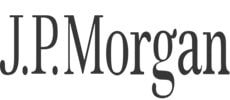About the School
The University of Pennsylvania’s business school is known as The Wharton School. It is the business school of a private Ivy League university in Philadelphia. In the United States, Wharton’s MBA program is ranked No. 1, according to Forbes, and according to the 2020 U.S. News & World Report ranking, it is No. 1 in the United States.
An Overview
Rank
Class Size
Course Fee ($)
Course Duration (months)
Average GMAT Score
Average GRE Score
| Number Of Participants | 7158 |
| Average Age | 28 |
| International Participants | 19% |
| Gender | 41% (Women) |
| Average Work Experience | 5 Years |
| Average Salary | $181,927 |
Here are some of the specializations that Wharton offers its MBA candidates:
Accounting
- Business Analytics
- Stem Certified Major
Business Economics And Public Policy
- Stem Certified Major
- Business, Energy, Environment and Sustainability
- Stem Certified Major
- Entrepreneurship & Innovation
- Finance
- Health Care Management
- Individualized MBA Major
Wharton gives a wide range of fellowship opportunities for various exceptional candidates, thanks to the generosity of individuals, corporate and foundation contributors, and the Wharton School.
All admitted students are considered for Wharton Fellowship support based on the application for admission. Guidelines for fellowship selection covers unique personal traits and background, academic achievement, outstanding professional development, and community engagement.
- Scholarships are offered in the Admission and Financial Aid letter.
- Fellowships are two-year awards, divided equally over four semesters for a regular MBA student.
- The Wharton Fellowship Committee does not offer a reconsideration of fellowship aid.
The MBA Career Management team at Wharton is dedicated to connecting students with a broad range of employers from the Fortune 500 to start-ups. Wharton claims that their MBAs are in high requirement because they produce quick and sustainable utility for corporate, nonprofit, and government organizations worldwide. Wharton’s MBA Career Management team supported 650+ companies and made offers to Wharton students.
98.5% – reported full-time job offers, 93.5% accepted
$130,000 – 165,000 Yearly Compensation Range, $150,000 median
12.3% of the accepted job offers were outside the U.S.
Campus Tour – Wharton School of Business
Notable Alumni
Wharton School of Business MBA Application Process
The latest application requirements set by the Wharton School of Business MBA admission office are described below.
First-time MBA applicants and re-applicants are required to complete both essays.
Essay 1: What do you hope to gain professionally from the Wharton MBA?
Word limit: 500 words
This is a standard career goals question. However, it’s also a question about your personality and potential success in the program. Jordan Mock, WG’16 wrote a blog post with three excellent tips for this essay, saying, “Wharton is unique and your essay should reflect that.”
Be careful to answer the specific question in this career goals essay. Notice that you are not asked about your professional background or your key accomplishments. Therefore, you should write about the future and what you will use your MBA to achieve. How will a Wharton MBA help you “connect the three career dots” that Jordan writes about?
You have room to add color by using your background information where it’s relevant to your goals. Think about the key moments of your professional life that led to your goals. Focus on telling the story of those decision points. This will be more effective than reciting your resume. Anything unique in your background is always worth describing.
Understanding exactly how you fit in will help you describe what Wharton will do for you. This will also help you navigate interactions with the Wharton admissions committee. Consider including specific information from your Wharton research in this essay. For example, mention the Wharton faculty you want to study with, or the unique classes at Wharton.
When you address your goals, make sure you are making the case for Wharton specifically. Consider what living in Philadelphia might be like. Think about the many clubs and student activities. Also, research the unique leadership development opportunities, such as traveling to Antarctica with your classmates.
Essay 2: Taking into consideration your background – personal, professional, and/or academic – how do you plan to make specific, meaningful contributions to the Wharton community?
Word limit: 400 words
Wharton is an intense academic environment. But, it also has a strong community focused on teamwork and learning from each other. As you select a topic for this essay, think about your particular background. What have you done in the past that can show how you will contribute?
Your contribution to the Wharton community could be in the classroom, clubs, or within small group projects. You might bring your experiences launching a new product to your marketing case studies. Maybe you will lend creative ideas to your learning team as you prepare a research project because you have demonstrated creativity in your past accomplishments.
Perhaps you have shown a tendency to teach and mentor others, and you plan to help your learning teammates with skills that they may not have learned in their own past work.
Or you might contribute to the Media and Entertainment Club by leading a career trek or bringing a new speaker to campus because you have connections from a prior career experience. Think about what you have learned in your career and in prior academics that may help those around you at Wharton.
Required Essay for all Reapplicants: Please use this space to share with the Admissions Committee how you have reflected and grown since your previous application and discuss any relevant updates to your candidacy (e.g., changes in your professional life, additional coursework, and extracurricular/volunteer engagements). (250 words)
All re-applicants are required to provide information that supports your renewed candidacy. The most successful version of the reapplicant essay will provide tangible evidence that you have improved the overall package you are submitting this year.
Improvements like GMAT score or new quantitative classes are especially tangible and convincing. But a promotion, increase in responsibility at work, a job change or even a change of goals and mission can serve as reasonable updates.
A rejection or waitlist last year is a form of feedback, and may have led to soul searching for you. When you describe your changes make sure to reflect your ability to take feedback and improve. Describe how you approached the reapplication process after assessing your own strengths and weaknesses. It is also useful to describe your efforts to improve.
Optional Essay: Please use this space to share any additional information about yourself that cannot be found elsewhere in your application and that you would like to share with the Admissions Committee. This space can also be used to address any extenuating circumstances (e.g., unexplained gaps in work experience, choice of recommenders, inconsistent or questionable academic performance, areas of weakness, etc.) that you would like the Admissions Committee to consider.
This space can also be used to address any extenuating circumstances (e.g., unexplained gaps in work experience, choice of recommenders, inconsistent or questionable academic performance, areas of weakness, etc.) that you would like the Admissions Committee to consider.
This optional essay is a great place to address any areas of concern in your application. For example, low GPA or GMAT, gaps in your resume, or grades under a C in any quantitative course. Wharton is looking for strong academics and quant skills. Other issues could be disciplinary action in undergrad.
First, explain the issue clearly and succinctly. Then, use evidence to show you have improved and addressed any concerns. Finally, discuss how you plan to maintain positive momentum.
| Rounds | Application Deadlines |
|---|---|
| Round 1 | Oct 8, 2020 |
| Round 2 | Jan 5, 2021 |
| Round 3 | Apr 8, 2021 |
Want to know more about the MBA Application Deadlines for Top B-Schools? Here’s the entire list of top B-Schools along with their deadlines – MBA Application Deadlines 2020-2021
You need to submit two letters of recommendations from people who are well acquainted with your accomplishment in a professional setting, preferably from a present or previous supervisor.
The title or status of the recommender is not as valuable as his/her capacity to reflect knowledgeably and particularly about you. Submit recommendations from somebody who can converse directly about your aptitudes and abilities.
They expect all recommendations to be submitted electronically. After you have reached out to your recommenders, please finish the form on the Recommendations page.
After choosing your recommenders, you may need to alter this selection. If a recommender has not started their recommendation, you can delete them and allow another recommender. Please note that your new recommender will not appear on the recommendation page of your application, nonetheless they will see the new listing when you submit your application.
LOR Questions:
Question 1: Please provide example(s) that illustrate why you believe this candidate will find success in the Wharton MBA classroom.
Word limit: 300
Question 2: Please provide example(s) that illustrate why you believe this candidate will find success throughout their career.
Word limit: 300
MBA Essay Analysis – Wharton School of Business
Top Recruiters




Useful Links
| Admission Info | How to Apply | Meet Wharton | Do Your Research |
|---|---|---|---|
| Admissions | Application Requirements | Wharton Stories | Alumni |
| Important Dates | News | Faculty & Research |





